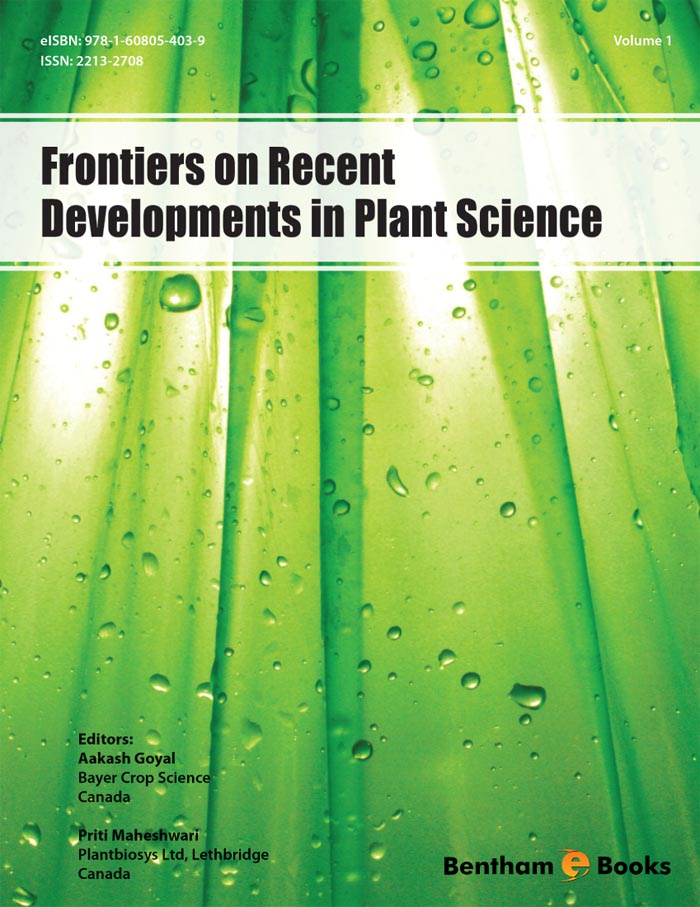Nobody knows when and where plants were used for the first time by human beings. Plants were used for food, fire, forage and even for medicinal purposes since prehistoric times. Plants have an entire kingdom of life forms, and are the most essential group of organisms in our world. Without plants, all other forms of life would cease to exist. When humans started building colonies and getting civilized their dependency on plants increased by several folds. Today plants are even more important due to their increased demand of for their different uses.
Research in plant sciences has a significant role to play in many wide areas including agriculture, energy, and environmental stewardship. Today we are dealing with an urgent issue on how to feed the growing world population. With increased and effective plant science research we can develop methods to provide sustainable food supply towards fulfillment of the increased food demand. Second issue is related to the rapidly changing environment leading to deterioration of natural resources and increased global warming. With advancements in plant sciences we can explore how plants can cope with less water, rising temperatures, and other environmental stresses. Plant science research can enable scientists to develop crops that can withstand changing climate conditions alongside of increased productivity. We really need to think today how plants can contribute as environmentally, economically, and socially sustainable sources of energy?
In past decade plant science research has flourished in many different and newer areas e.g. plant genetics, genomics, molecular biology, epigenetics and proteomics. This broadened research has augmented our knowledge to understand plants better than before. With the help of several new concepts and powerful strategies like Marker Assisted Selection (MAS), LD mapping, Association mapping, Gene cloning, Radiation hybrid mapping, RNA interference, TILLING, Expression Genetics, and Genome sequencing of model plants, we are now able to improve and think of efficient and different uses of plants.
This multi authored edited eBook “Frontiers on Recent Developments in Plant Science” is an attempt to put forth a compilation of work in various areas of plant science of several scientists and post-doctoral fellows across the world, all well known, distinguished and experts in different frontiers of plant science research. This eBook is an effort to gather the successes achieved in areas of plant genetics, molecular biology and breeding aspects across all the major continents. The chief objective of the eBook hence is to deliver state of the art knowledge, information to comprehend the advancement of plant science research to its readers.
REVIEW PROCESS
Each chapter of the eBook has undergone a double-blinded review process being reviewed by two independent reviewers. The reviewers were selected for their active expertise in the field of the respective chapter. After review, the authors made all probable corrections in the light of reviewers comments after which the chapters were accepted. The constructive comments and critical advice of the reviewers have greatly improved the quality and content of this eBook.
ACKNOWLEDGEMENTS
First of all the Editor’s would like to thank all the Author’s for their outstanding efforts, and timely work in producing such fine chapters. We also greatly appreciate all the reviewers for their time to review the respective chapters. We would also like to thank Bentham Science Publication and Salma for her clerical assistance, advice and encouragement during the development of this eBook. Last but not least heartfelt thanks goes to our families, and parents for their love, encouragement and vision that unveiled in us from our earliest years, the desire to thrive on the challenge of always striving to reach the highest mountain in everything we do.
Aakash Goyal,
Canadian Wheat Breeder
Bayer Crop Science
Canada
Priti Maheshwari
Research Scientist Plant Transformation Division
Plantbiosys Ltd, Lethbridge
Bayer Crop Science
Canada

